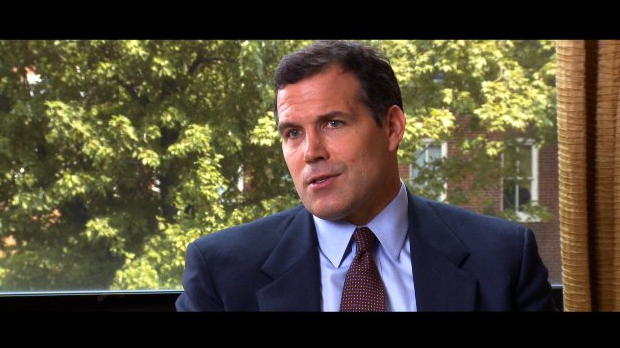Inside job
As I write this review, the Federal Reserve is embarking on a near trillion-dollar program that it hopes will stimulate the economy. Quantitative Easing amounts to Helicopter Ben Bernanke printing money in order to horse-whip capital off the sidelines and into circulation.
You might think this is the best thing to do. Or you might think is a last-ditch backdoor stimulus and taxation without representation (by devaluing the money that you have sitting in the bank). You might even be looking at wheelbarrow investments and polishing your father’s 1975 vintage Whip Inflation Now button.
If you think this is another handout to a politically-connected banking industry, you might be interested in Charles Ferguson’s “Inside Job.” The much-praised documentary takes a biting, long-term look at the institutional corruption that fed the financial crisis we’re still trying to escape. The film’s big achievement is boiling down the truth without dumbing down the truth.
This damning view of the US financial system starts with the major players in their roles during the Savings and Loan crisis of the late 80s, proceeds through the 90s boom and the Internet Bust, and finally plows through detail after detail of the subprime mortgage fiasco that resulted in the Great Recession of 2008. Ferguson points to consolidation and rapid growth of the banking industry as the main culprit, fueling riskier and riskier investments. Ultimately, perverse incentives led risk-taker bankers to make billions of dollars in housing loans for which they had no good reason to expect repayment.
That’s not where it ends. Ferguson goes through painful detail of the political-financial inbreeding that enabled the housing crisis. Figures from both worlds bounce from Wall Street to Pennsylvania Ave. doing what’s best for the big banks. Neither Republican nor Democrat is spared. Those who should be blowing the whistle fail to do so. Those that do are ignored. The best moments are when participants are cornered over their roles in rubber-stamping the subprime crisis, then shown to have survived with reputations and power intact.
I don’t agree with all of the premises. For instance, the movie shows a graph of the proportion of recent tax cuts the very rich received. But it doesn’t show the amount that the very rich pay. And it doesn’t show the amount that that revenue might have generated through circulation in the economy. Also the film doesn’t draw much of a line between sinister intentions and honest mistakes. What appears like corruption is, I would guess, sometimes incompetence.
If you want a cynical, snappy explanation of the bank bailout, here’s one. They stole your grandchildren’s money so that bankers could still pay for their cocaine and call girls. There is a whole, whole, whole lot more to it, but it a shocking little sentence that does a nice job summing up the risk, dissolution, corruption, and narcissism. And if this little documentary doesn’t get you fired up about macro-economics, nothing will.
news via inbox
Nulla turp dis cursus. Integer liberos euismod pretium faucibua


